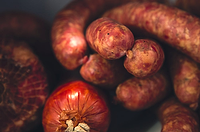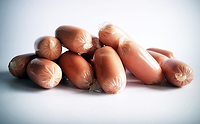Listeria Found at South Africa Chicken Plant; Class Action Lawsuit Filed

Tests performed at RCL Foods--the company named as the source of South Africa’s Listeria outbreak--resulted in no traces of the deadly Listeria ST6 strain at the processing plant. However, other strains of the pathogen were detected on the premises that could cause foodborne illness.
In a statement, health officials confirmed that whole genome sequencing did uncover the presence of Listeria monocytogenes, but not the strain that caused the deadly outbreak.
RCL Foods and Tiger Brands are the companies suspected of processing contaminated ready-to-eat chicken polony products that caused the outbreak. Tiger Brands is South Africa’s biggest processed food producer.
Despite a recall issued in early March, health officials still believe that the outbreak may not be over yet for a number of reasons:
- the incubation period of listeriosis can be up to 70 days
- the implicated food products have a long refrigeration shelf life, and it is possible that despite the recall some products were not removed from retail/home settings, and consumption might occur
- the possibility of cross-contamination of other types of foods in the retail or home setting may result in additional cases
This week, U.S.-based food safety attorney Bill Marler, along with South Africa’s human rights attorney Richard Spoor, officially filed a class action lawsuit on behalf of 10 victims and their families. The lawsuit specifically names Tiger Brands Limited and Enterprise Foods.
Thus far, 189 people have died--including newborn babies--and nearly 1,000 have fallen ill since the outbreak started in January 2017.
Sign up for Food Safety Magazine’s bi-weekly emails!
Subscribe to our podcast: Food Safety Matters!
Looking for a reprint of this article?
From high-res PDFs to custom plaques, order your copy today!





